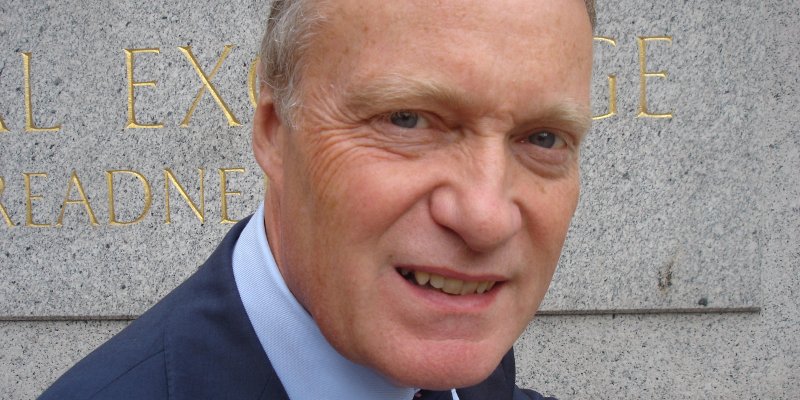Next month, we will see the first increase in the cost of borrowing in over nine years, notwithstanding any horrendous sets of economic data emerging in the next few weeks.

Tony Ward (pictured) is chief executive of Clayton Euro Risk
So much debate over the last few months about if and when the Bank of England’s Monetary Policy Committee (MPC) will raise interest rates.
Well, despite some serious misgivings, I think that the time is nigh.
Next month, we will see the first increase in the cost of borrowing in over nine years, notwithstanding any horrendous sets of economic data emerging in the next few weeks.
It is fair to say that the governor of the Bank of England has been issuing warnings that rates will have to rise since the last MPC meeting.
Even just a few days ago, Mr Carney confirmed that UK interest rates will rise ‘in the coming months’.
He told CNBC: “We’ve been willing to tolerate inflation being over target. We’re in relatively rare company with having inflation over target.”
The governor added that any increase in the Bank rate from 0.25% would be “gradual”
“More people in the UK are working than ever before, so we’re running out of that spare capacity, and that tolerance for having inflation over target in years two and three (of the Brexit process approved in June 2016) has diminished.”
Mr Carney seems to have discovered a new, steely determination so I can’t see him playing the boy who cried wolf much longer without ruining the Bank’s credibility.
Whether it’s the right time to make this decision remains to be seen.
Figures due to be released on Tuesday are expected to show inflation to have risen to at least 3% in September.
This means Mark Carney will be compelled to write the Chancellor to explain why he has missed the 2% inflation target.
“Now that we are in letter-writing territory, a November rate hike is starting to look like a done deal,” said Alan Clarke of Scotiabank.
Mr Carney has indicated he intends to raise rates to 0.5% at November’s MPC meeting.
Markets now believe this will not simply be a one-off move – investors have priced in a greater than 50% chance of a rate hike in May 2018, too.
Economist George Buckley at Nomura believes this could be the start of a tightening cycle, with rates rising by 0.25% every six months.
Assuming Brexit talks lead to a transitional deal followed by a trade agreement, “…it seems entirely reasonable that we should be forecasting a continuation of the economic expansion for the UK over the next few years and so can cope with higher rates,” he said.
However, other forecasters have urged the MPC to keep rates on hold for a year as the economy will be ‘’stuck in low gear’’.
The EY Item Club, which uses the Treasury’s forecasting model, said growth would be 1.5% this year and 1.4% in 2018.
“While it is understandable that the MPC will want to gradually normalise rates from their current ‘emergency levels’, it would be better to do so once the economy is on a stronger footing,” said the Item Club’s Howard Archer.
“It is still likely that inflation will fall back markedly during 2018 as the impact of sterling’s past drop fades. Brexit uncertainties are also likely to remain elevated well into 2018 and perhaps beyond.”
I’m firmly in Mr Archer’s camp. I’ve mentioned this before but I still don’t see consistent signals of strong economic growth and wages remain weak and likely to fall even further behind the cost of living.
Furthermore, last week the British Chambers of Commerce reported that the UK economy grew at a muted rate in the third quarter of 2017. Services, domestic sales and orders remained static, as did the sector's employment expectations.
There are warning bells here.
BCC director general Dr Adam Marshall said: “The uninspiring results we see in our third quarter findings reflect the fact that political uncertainty, currency fluctuations and the vagaries of the Brexit process are continuing to weigh on business growth prospects.”
The BCC said that in the current economic climate, it seemed ‘extraordinary’ that the Bank of England was considering raising interest rates.
“We'd caution against an earlier than required tightening in monetary policy, which could hit both business and consumer confidence and weaken overall UK growth,” said BCC head of economics Suren Thiru.
“While interest rates need to rise at some point, it should be done slowly and timed to not harm the UK's growth prospects.”
My thoughts exactly.



